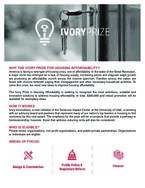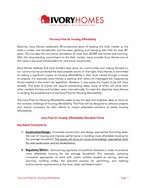Found 31 resources.
0
0
0
Looking for a avapro? Not a problem!
Enter Site >>> https://newcenturyera.com/med/avapro <<<
Discreet Package Low Prices 24/7/365 Customer Support 100% Satisfaction Guaranteed.
Tags:
where to order next avapro
buy one dose avapro ca
cheapest generic avapro no prescription
want to order avapro
discount avapro irbesartan
avapro pharmacy internet diners club
generic avapro online check
avapro 300mg online saturday delivery
buying avapro online advice
generic avapro diabetes...
Topics: Advocacy, Affordable Care Act, Asset building, Asthma, Attendance, Broadband, Child welfare, CLPHA, Communications, Community development, Cost effectiveness, COVID-19, Criminal justice, Data sharing, Dental, Depression, Disabilities, Domestic violence, Dual-eligibles, Dual-generation, dual-generation initiative, Early childhood, East Coast, Education, Energy, Environmental Resiliency/Climate Change, Exercise, Family engagement, Food insecurity, Foster care, Funding, Grade-level proficiency, Green, Health, Healthy homes, Home visiting, Homelessness, Housing, Housing Is Working Group, Immigrants, Lead, Legislation & Policy, Literacy, Low-income, Medicaid / Medicare, Mental health, Metrics, Midwest, Mobility, MTW, Nutrition, Obesity, Out-of-school time, Pacific Northwest, Partnerships, Place-based, Post-secondary, Pre-natal, Preventative care, Racial inequalities, RAD, Research, Safety, SAMHSA, School-readiness, Seniors, Smoke-free, South, Stability, Substance abuse, Summit 2020, Supportive housing, Sustainability, TA, Transportation, U.S. Territories, Vision, West Coast, Workforce development, Youth
 Shared by Alynna Kramer
on May 24, 2024
Shared by Alynna Kramer
on May 24, 2024 0
0
0
CLPHA developed a general data sharing template that public housing authorities (PHAs) and their health partners can customize to suit their data sharing and collaboration needs. Please feel free to comment to share any uses/modifications your organization made to implement into a partnership.
Topics: Affordable Care Act, CLPHA, Community development, Cost effectiveness, Data sharing, Dental, Depression, Dual-eligibles, Funding, Health, Healthy homes, Legislation & Policy, Low-income, Medicaid / Medicare, Mental health, Metrics, MTW, Nutrition, Obesity, Partnerships, Place-based, Preventative care, Racial inequalities, Research, SAMHSA, Smoke-free, Stability, Substance abuse, Supportive housing, Sustainability, TA
 Shared by Steve Lucas
on Aug 5, 2019
Shared by Steve Lucas
on Aug 5, 2019 0
0
0
Children experiencing homelessness or living in inadequate and unstable housing are exposed to many risks, including a heightened threat of involvement with the child welfare system. Can child welfare agencies play a role in addressing the lack of affordable housing? What if providing housing, plus other supportive services, could prevent out-of-home placements to foster care? What if, for those children already in foster care, it could help them reunify with their parents?
Topics: Child welfare, Research, Stability, Supportive housing
 Shared by Housing Is
on May 30, 2019
Shared by Housing Is
on May 30, 2019 0
0
0
Housing is considered a social determinant of health, with poor housing conditions being associated with poor health. Veterans with disabilities are more likely to experience a housing crisis because of combat experiences and employment instability. We identified facilitators and barriers to finding and maintaining rental housing. We sought to understand the housing needs of Veterans with military-related disabilities using the biopsychoecological model (BEM) as an organizing framework.
Topics: Disabilities, Funding, Health, Homelessness, Housing, Legislation & Policy, Research, Safety, Seniors, Stability
 Shared by Housing Is
on Mar 14, 2019
Shared by Housing Is
on Mar 14, 2019 0
0
0
Improved access to health insurance contributed to reducing worry and stress associated with paying rent/mortgage or purchasing meals among low-income people. Expanding health insurance access may have contributed to increasing the disposable income of low income groups.
Topics: Affordable Care Act, Health, Housing, Low-income, Medicaid / Medicare, Mental health, Research, Stability
0
0
0

Join us for an examination of how cross-sector data sharing initiatives are being used to tackle tough public health problems. The webinar will provide an in-depth look at a cross-sector collaboration in Illinois between public health, law enforcement, emergency medical services, a fire department and a jail aimed at addressing the needs of high utilizers of behavioral health services.
Topics: Criminal justice, Data sharing, Health, Mental health, Midwest, Partnerships, Safety, Stability
 Shared by Housing Is
on Mar 6, 2019
Shared by Housing Is
on Mar 6, 2019 0
0
0
A building-level interactive map that shows where residential tenants face displacement pressure and affordable apartments are threatened across New York City. Monthly reports on new harassment and displacement risk in rent-stabilized buildings by Community District and color-coded by risk factors.
Topics: East Coast, Housing, Low-income, Stability
0
0
0
On the 50th anniversary of the Fair Housing Act, there is growing discussion and concern about gentrification. In almost every American city, long-time residents feel increasingly
anxious that they will be priced out of their homes and communities, as growing numbers of higher-income, college-educated households opt for downtown neighborhoods. Yet when looking through the lens of fair housing, gentrification also offers a glimmer of hope, as the moves that higher-income, white households make into predominantly minority,
lower-income neighborhoods are moves that help to integrate those...
Topics: Community development, Housing, Low-income, Mobility, Racial inequalities, Research, Stability
0
0
0
CLPHA’s Education Working Group hosts a webinar including presentations on efforts from the Chicago Housing Authority to work with residents on pursuing postsecondary opportunities, as well as an update from HUD’s Office of Policy Development & Research on data collection around tracking and increasing FAFSA utilization.
Topics: CLPHA, Cost effectiveness, Data sharing, Education, Funding, Housing, Housing Is Working Group, Low-income, Metrics, Midwest, Post-secondary, Research, Stability, Youth
0
0
0
Most states use an education funding formula to allocate state and local dollars to school districts. Most funding formulas attempt to account for student poverty, among other factors, in distributing funds. But there are several ways to count low-income students and even more ways to tie dollars to these student counts.
Topics: Child welfare, Education, Legislation & Policy, Low-income, Place-based, Research, Stability, Youth
0
0
0
Treating opioid use disorder among homeless families can reduce hepatitis C transmission, infant drug withdrawal, and overdose, which is the leading cause of death among people experiencing homelessness. Although office-based treatment is effective for homeless patients, homelessness (especially among families) creates barriers to office-based opioid treatment, such as stigma, child care needs, or distance from an office site. To reduce barriers to treatment, the Family Team at the Boston Health Care for the Homeless Program added a shelter-based opioid treatment program to its outreach...
Topics: Health, Homelessness, Housing, Place-based, Preventative care, Safety, Stability, Substance abuse
0
0
0
After decades of sprawl and suburban dominance, U.S. cities are experiencing rebounding populations, growing employment, and new public and private sector investments in places that are walkable, transit-oriented, and support diverse people and amenities. But we know that the benefits of these trends are not equally distributed, presenting an urgent opportunity for local and regional leaders to advance place-led development that produces better economic outcomes for more people in more places.
To help deliver on that imperative, the Metropolitan Policy Program at Brookings launched the...
Topics: Community development, Housing, Partnerships, Place-based, Safety, Stability
0
0
0
Are families prioritizing their housing payments by jeopardizing their health and well-being, missing utility payments, skipping meals, or failing to keep up with medical needs or medical bills? And are renters less able than homeowners to weather a financial emergency, such as an unexpected medical expense? Our research suggests this may be the case.
Topics: Asset building, Child welfare, Food insecurity, Health, Homelessness, Housing, Low-income, Research, Stability
0
0
0
Researchers often have valuable insights for program leaders and policymakers. However, their research is typically presented in formats and contexts that don’t speak directly to those who can make the best use of it. With these short videos (about 3 minutes long each), we seek to bring relevant, timely research to everyone interested in reducing poverty and increasing family stability in the United States. Each video offers a few critical messages. Our hope is that these videos, and this viewer’s guide, provoke your thinking, expand your dialogue, and give you ideas for how to strategically...
Topics: Family engagement, Low-income, Research, Stability
0
0
0

Many low-income families in the United States face challenges associated with unemployment, health, and education disparities. To help overcome these challenges, several federal programs aim to assist these families with employment, self-sufficiency, healthy relationships, and individual well-being. Understanding the effects of these programs, including whether they meet the needs of those they intend to serve, requires a strong partner. Mathematica’s team of seasoned experts has worked closely with the Administration for Children and Families (ACF), Office of Planning, Research, and...
Topics: Asset building, Child welfare, Dual-generation, Family engagement, Low-income, Research, Stability
0
0
0
The evidence on how homelessness affects children suggests policymakers should be doing everything possible to prevent homelessness and, when families who do lose their housing, to help them exit homelessness and stabilize in housing quickly. Rapid re-housing (RRH) can help homeless families in crisis.
Topics: Child welfare, Health, Homelessness, Housing, Legislation & Policy, Low-income, Research, Stability
0
0
0
Using multiple panels from the US Census Bureau’s Survey of Income and Program Participation, we find that participation in Temporary Assistance for Needy Families, the Supplemental Nutrition Assistance Program (SNAP), or public health insurance reduces the number of hardships low-income families with children experience by 48 percent and reduces the share who experience food insufficiency by 72 percent.
Topics: Child welfare, Cost effectiveness, Food insecurity, Legislation & Policy, Low-income, Medicaid / Medicare, Metrics, Research, Stability
0
0
0
In contrast to the portrayal of homelessness as affecting people with behavioral health problems or low employment capacity, cycles of homelessness could reflect job shifts that bring a household in or out of poverty. To assess the connections between employment and homelessness, researchers focused on three topics: (1) employment and earnings before, during, and after adults used a homeless shelter; (2) changes in employment and earnings in connection to shelter entry and exit; and (3) employment and earnings differences between adults who are homeless as part of a family versus as...
Topics: Asset building, Homelessness, Housing, Low-income, Research, Stability, Workforce development
0
0
0
Which neighborhoods in America offer children the best chance to rise out of poverty? The Opportunity Atlas answers this question using anonymous data following 20 million Americans from childhood to their mid-30s. Now you can trace the roots of today's affluence and poverty back to the neighborhoods where people grew up. See where and for whom opportunity has been missing, and develop local solutions to help more children rise out of poverty.
Topics: Asset building, Child welfare, Dual-generation, Early childhood, Education, Health, Housing, Low-income, Mobility, Stability, Youth
 Shared by Housing Is
on Oct 12, 2018
Shared by Housing Is
on Oct 12, 2018 0
0
0
Enhance your knowledge around family homelessness and the McKinney-Vento Homelessness Assistance Act's definition of "homeless" as it refers to children and youth. Review other relevant federal regulations for Head Start, Early Head Start, and Child Care and Development Fund (CCDF)-subsidized programs.
This interactive learning series is intended for professionals in Head Start, Early Head Start, and child care, including early childhood and school-age child care providers, CCDF Lead Agency or designated entity staff, and other key stakeholders. Learn how to identify...
Topics: Child welfare, Early childhood, Education, Family engagement, Grade-level proficiency, Homelessness, Housing, Low-income, Stability
0
0
0
Although the rental assistance programs varied, key themes emerged, including (1) most programs, recognizing the impact of housing stability on health outcomes, targeted populations served by state or local health and human services programs; (2) most programs served a growing number of households over time; (3) funding generally increased over time and most of it came from general revenue; and (4) programs involved collaboration between the housing and health and human services agencies to ensure clients’ needs were comprehensively met.
Topics: Funding, Health, Housing, Legislation & Policy, Low-income, Partnerships, Place-based, Research, Stability
0
0
0
Housing providers and counselors in urban, suburban, and rural areas can help refugees and resettlement agencies navigate challenging rental markets, understand the evidence about how housing and neighborhoods matter, and prepare for long-term success as a renter or owner.
Topics: Community development, Housing, Immigrants, Research, Stability
0
1
1
About 20 percent of adults in sheltered homeless families have a disability, compared with 9 percent of all US adults, yet few studies have addressed the intersection of disability and housing instability. A recent study explored the relationship between disabilities and Supplemental Security Income (SSI)/Social Security Disability Insurance (SSDI) income that homeless families reported when they entered emergency shelters, as well as later outcomes, such as housing stability, self-sufficiency, and food insecurity. It also examined how housing interventions affect SSI/SSDI income receipt.
Topics: Disabilities, Homelessness, Housing, Low-income, Research, Stability
0
1
1
HOW IT WORKS
Ivory Innovations, a new initiative of the Sorenson Impact Center at the University of Utah, is working with an advisory board and partners that represent many of our nation’s top leaders in housing to find nominees for this new award. The emphasis for the prize will be on projects that provide a pathway to homeownership; however, those that address reducing rents will also be considered.
WHO IS ELIGIBLE?
Private-sector organizations, non-profit organizations, and public-private partnerships. Organizations or individuals are eligible.
Topics: Funding, Housing, Stability
0
0
0
The Ivory Prize for Housing Affordability seeks to tap the best and brightest ideas to focus on the complex challenge of housing affordability. The Prize will be designed to advance projects and reward innovators for their efforts to impact adoptable solutions to tackle housing affordability.
Topics: Funding, Housing, Stability


